
STL高效编程
¥ 10.2 九品
仅1件
上海徐汇
认证卖家担保交易快速发货售后保障
作者迈耶斯
出版社机械工业出版社
出版时间2006-08
版次1
装帧平装
货号L-3
上书时间2023-07-19
- 店主推荐
- 最新上架
商品详情
- 品相描述:九品
图书标准信息
- 作者 迈耶斯
- 出版社 机械工业出版社
- 出版时间 2006-08
- 版次 1
- ISBN 9787111196242
- 定价 32.00元
- 装帧 平装
- 开本 其他
- 纸张 胶版纸
- 页数 260页
- 【内容简介】
-
C++的标准模板库(STL)是革命性的,但是要想学会用好STL却充满了挑战性。中国台湾技术作家侯捷先生曾经把STL的学习过程比喻为三个境界:
第一境界:熟用STL。
第二境界:了解泛型技术的内涵与STL的学理乃至实作。
第三境界:扩充STL。
本书无疑是你达到第二境界的*读本。在本书中,C++技术权威Scott Meyers揭示了专家总结的一些关键规则,包括他们总是采用的做法以及总是避免的做法。这些规则可以发挥STL的*效用。
有些书只是描述STL中有些什么内容,而本书则讲述如何使用STL。本书共有50条指导原则,在讲述每一条指导原则时,Scott Meyers都提供了透彻的分析和深刻的实例,所以读者不仅可以学到要做什么,而且还能够知道什么时候该这样做,以及为什么要这样做。
如同Meyers的其他著作一样,本书充满了从实践中总结出来的智慧。清晰、简明、透彻的风格使本书成为每一位STL程序员的案头必备。
本书特色
●关于选择容器的建议,涉及的容器有:标准STL容器(例如vector和list)、非标准的STL容器(例如hash_set和hash_map),以及非STL容器(例如bitset)。
●一些提高效率的技术,通过它们可以*程度地提高STL(以及使用STL的程序)的效率。
●深入到迭代器、函数对象和分配子(allocator)的行为,也包括程序员总是应该避免的做法。
●对于那些同名的算法和成员函数,如find,根据它们行为方式上的微妙差异,本书给出了一些指导原则,以保证它们能被正确地使用。
●讨论了潜在的移植性问题,包括避免这些移植性问题的各种简单途径。 - 【作者简介】
- Scott Meyers,拥有布朗大学计算机科学博士学位,是世界*的C++软件开发技术权威之一。他的两本畅销书《Effective C++》和《More Effective C++》开创了技术图书“Effective”式的写作风格。他曾担行《C++ Report》杂志的专栏作家,还经常为《C/C++ Users Journal》和《Dr.
- 【目录】
-
Preface
Acknowledgments
Introducton
Chapter 1: Containers
Item 1: Choose your containers with care.
Item 2: Beware the illusion of container-independent code.
Item 3: Make copying cheap and correct for objects in containers.
Item 4: Call empty instead of checking size() against zero.
Item 5: Prefer range member functions to their single-element counterparts.
Item 6: Be alert for C++’s most vexing parse.
Item 7: When using containers of newed pointers, remember to delete the pointers before the container is destroyed.
Item 8: Never create containers of auto_ptrs.
Item 9: Choose carefully among erasing options.
Item 10: Be aware of allocator conventions and restrictions.
Item 11: Understand the legitimate uses of custom allocators.
Item 12: Have realistic expectations about the thread safety of STL containers.
Chapter 2: vector and string
Item 13: Prefer vector and string to dynamically allocated arrays.
Item 14: Use reserve to avoid unnecessary reallocations.
Item 15: Be aware of variations in string implementations.
Item 16: Know how to pass vector and string data to legacy APIs.
Item 17: Use “the swap trick” to trim excess capacity.
Item 18: Avoid using vector.
Chapter 3: Associative Containers
Item 19: Understand the difference between equality and equivalence.
Item 20: Specify comparison types for associative containers of pointers.
Item 21: Always have comparison functions return false for equal values.
Item 22: Avoid in-place key modification in set and multiset.
Item 23: Consider replacing associative containers with sorted vectors.
Item 24: Choose carefully between map::operator[] and map::insert when efficiency is important.
Item 25: Familiarize yourself with the nonstandard hashed containers.
Chapter 4: Iterators
Item 26: Prefer iterator to const_iterator, reverse_iterator, and const_reverse_iterator.
Item 27: Use distance and advance to convert const_iterators to iterators.
Item 28: Understand how to use a reverse_iterator’s base iterator.
Item 29: Consider istreambuf_iterators for character by character input.
Chapter 5: Algorithms
Item 30: Make sure destination ranges are big enough.
Item 31: Know your sorting options.
Item 32: Follow remove-like algorithms by erase if you really want to remove something.
Item 33: Be wary of remove-like algorithms on containers of pointers.
Item 34: Note which algorithms expect sorted ranges.
Item 35: Implement simple case-insensitive string comparisons via mismatch or lexicographical_compare.
Item 36: Understand the proper implementation of copy_if.
Item 37: Use accumulate or for_each to summarize ranges.
Chapter 6: Functors, Functor Classes, Functions, etc.
Item 38: Design functor classes for pass-by-value.
Item 39: Make predicates pure functions.
Item 40: Make functor classes adaptable.
Item 41: Understand the reasons for ptr_fun, mem_fun, and mem_fun_ref.
Item 42: Make sure less means operator
点击展开
点击收起
— 没有更多了 —




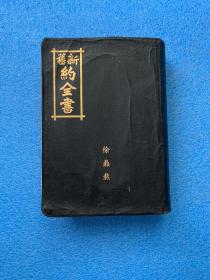







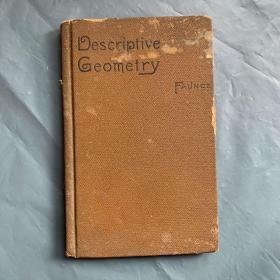

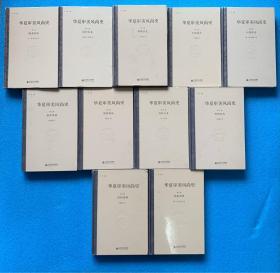
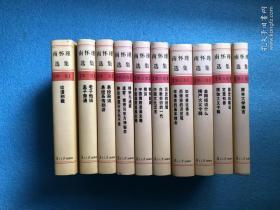

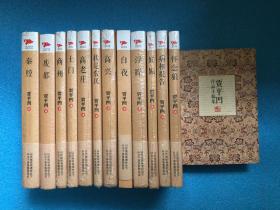





以下为对购买帮助不大的评价